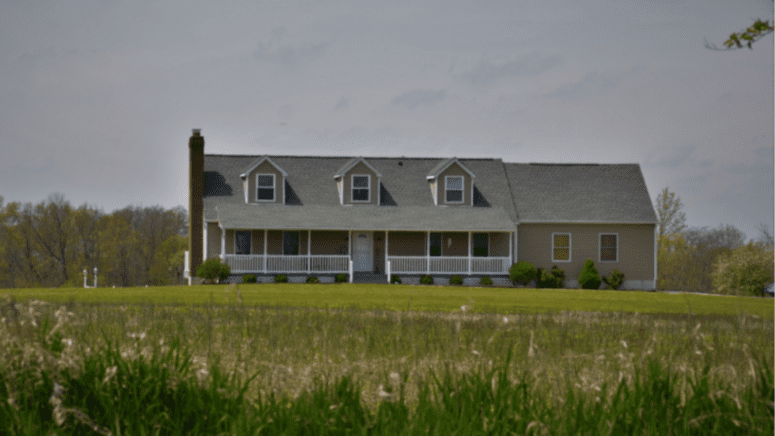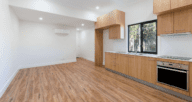How Do Open Houses Work? Your Guide to Viewing a Home
- Published on
- 5 min read
-
 Amna Shamim, Contributing AuthorClose
Amna Shamim, Contributing AuthorClose Amna Shamim Contributing Author
Amna Shamim Contributing AuthorAmna Shamim is a writer and digital marketing consultant who works with local and e-commerce businesses, ensuring they are easily findable online to and trusted by their clients. Her words have been featured in Glamour Magazine, Business Insider, Entrepreneur, Huff Post, Thrive Global, BUST, Paste, and other publications.
-
 Taryn Tacher, Senior EditorClose
Taryn Tacher, Senior EditorClose Taryn Tacher Senior Editor
Taryn Tacher Senior EditorTaryn Tacher is the senior editorial operations manager and senior editor for HomeLight's Resource Centers. With eight years of editorial and operations experience, she previously managed editorial operations at Contently and content partnerships at Conde Nast. Taryn holds a bachelor's from the University of Florida College of Journalism, and she's written for GQ, Teen Vogue, Glamour, Allure, and Variety.
For many prospective home buyers, stepping into an open house can be the gateway to finding their dream home. It’s an opportunity to explore a property, imagine life within its walls, and assess its potential as your future home. But what exactly happens at these events, and how can you as a buyer make the most of them?
Open houses are more than just casual walkthroughs; they give you a chance to gather valuable information, ask critical questions, and gauge the market.
Whether you’re a first-time homebuyer or a seasoned investor, understanding the nuances of open houses can significantly enhance your property search and inform your buying decisions. Let’s step inside the world of open houses and explore how they function, what you should look for, and how to use them to your advantage in the home-buying process.
What to expect at an open house
Before you go
As a buyer, you can find open houses through your real estate agent, the multiple listing service (MLS), or sometimes through luck (driving around, happening across posted notices, and so on.)
If you plan to visit more than one open house on a given weekend, you’ll want to prioritize which ones to attend and in what order to minimize running around.
While some open houses include refreshments, you shouldn’t expect them. If you’re hungry or thirsty, stop on your way for drinks or a snack.
When you arrive
Open really does mean open, so there’s a good chance there will be other people there when you go. You don’t have to book time with the agent or make any special arrangements. When you arrive, you can walk right in; no need to ring the doorbell or wait for admission.
You’ll be expected to sign in, so the agent can record visitor numbers and determine how popular the open house was. They may ask you for details, such as your approved price range, your ideal home size (two beds, three beds, and so on), and if you’re working with another agent.
They may also ask you to follow certain safety or cleanliness guidelines, as homeowners are often still living there and don’t want to come home to a messy or damaged house.
While you’re there
The open house will be hosted by a real estate agent, not the seller. Many buyers find it easier to imagine living in the house without the current residents hovering around, so sellers typically vacate to give buyers the time to explore the home freely.
Walk through the house and take notes about features you like or don’t like. Try not to crowd other visitors; wait for other groups to leave a room before you enter.
It’s common to take measurements and peek inside cabinets and closets to see what storage is like. If you feel uncomfortable, you can always confirm with the listing agent that it’s okay to do all these things.
Tip: Bring a measuring tape with you, so you can accurately envision how your furniture and decor will fit into the space.
Marla Alt, CEO and founder of 123organize, advises that you “pay attention to rugs, art, and wall decor. If the placement on the floor or wall seems off, it might be covering something. Of course, there is general wear and tear in houses, especially on floors, but it’s always good to know for sure what’s being concealed.”
As you peruse, feel free to ask the listing agent questions about the house. The agent may also ask you questions to help you determine if the home you’re looking at is a fit for your needs. Don’t feel nervous or like there are bad or wrong answers. Generally, the listing agent is looking for your insights and may have other houses to suggest that would also fit your criteria.
Before you leave
There may be fliers or informational handouts for you to take home, so you don’t forget the relevant details of the house you just visited. Using a house-hunting checklist can also help you keep properties straight.
Can you book a private showing?
While open houses offer a convenient way to explore a property in a no-pressure environment, they might not always suit the needs of every prospective buyer. Perhaps you’re looking for a more in-depth look at the property, or you prefer to discuss specifics without the presence of other buyers. This is where booking a private showing can be beneficial.
Private showings allow you to scrutinize a property in detail and have one-on-one time with the listing agent or your own real estate agent. In these personalized tours, you have the freedom to ask specific questions, inspect areas more closely, and take the time you need to evaluate the home without the distraction of other buyers. It’s also a great time to bring in experts, like home inspectors, or to revisit areas of concern that you noticed during the open house.
To arrange a private showing, you can contact the listing agent directly or ask your own agent to schedule one for you.
Remember: Real estate agents understand the value of private showings and are generally accommodating to such requests, especially if you’re seriously considering the property. However, it’s important to note that private showings require coordination and might not be available immediately, depending on the seller’s schedule and the availability of the agents involved.
When requesting a private showing, be prepared to provide some flexibility in timing. Additionally, demonstrating that you’re a serious buyer — which could include having mortgage pre-approval — can make it easier to schedule these showings.
Embracing the open house experience
Remember, while open houses are informative, they are just one piece of the home-buying puzzle. They work best when complemented with professional advice and thorough research. As you step into each open house, keep an open mind, but also maintain a critical eye. Ask questions, take notes, and consider every aspect of the property. The journey to finding your perfect home is a blend of excitement, discovery, and learning — with each open house bringing you one step closer to making an informed decision. Happy house hunting!
Header Image Source: (Roger Starnes Sr / Unsplash)




